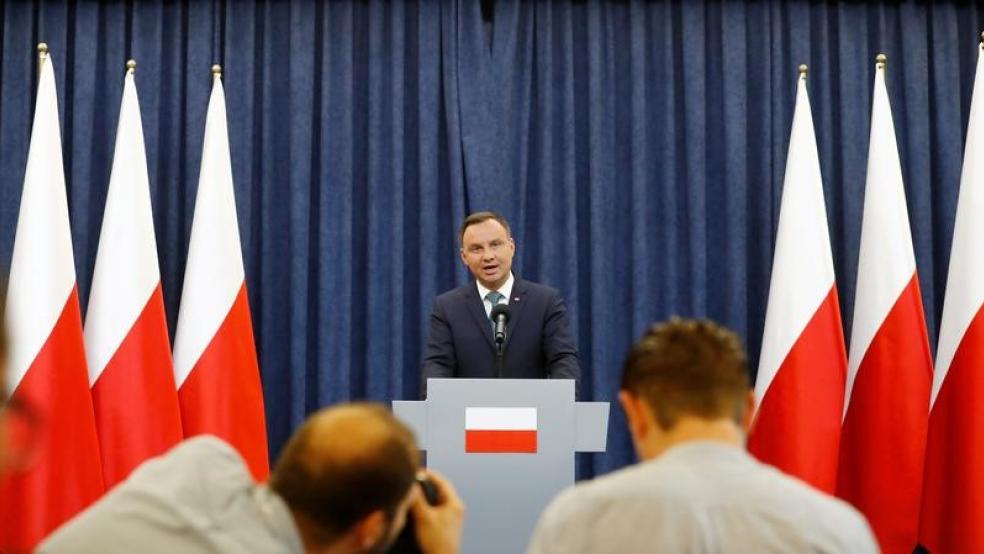BRUSSELS (Reuters) - The European Commission on Monday reserved judgment on the Polish president's veto of two laws that Brussels fears would undermine judicial independence, instead saying it would discuss the matter at its next meeting.
President Andrzej Duda surprised his allies in the socially conservative, euroskeptic Law and Justice (PiS) party by saying he would block two of three new bills giving the government powers to replace Supreme Court judges.Brussels last week said it would open more legal cases against Poland this Wednesday if the three new laws are enacted.Margaritis Schinas, spokesman for the European Union's executive arm, suggested in a briefing on Monday that Brussels needed time to analyse the new situation."The Commission is following the events and the situation in Poland very closely," he said. All developments and all the changes that are going on will be addressed by the Commission on Wednesday."PiS says the reforms are needed to make the courts serve all Poles, not just the "elites".But Commission Deputy President Frans Timmermans said last week that the bills would "abolish any remaining judicial independence and put the judiciary under full political control of the government".The Commission last year launched an unprecedented review of the rule of law in Poland over concerns that more direct government control over the judiciary and the media were undermining democratic checks and balances.A senior EU diplomat said it was not clear at this stage whether the amendments that Duda was asking for would be more than cosmetic.The diplomat said Brussels had been sounding out member states on a possible vote declaring that they see the rule of law as threatened in Poland - a vote that would require the assent of four-fifths of member states.Even if such a resolution were passed, it is highly unlikely that the EU would actually punish Poland with sanctions, as this would require the unanimous approval of the other 27 member states - something that PiS's euroskeptic ally, Hungarian Prime Minister Viktor Orban, has made clear he would block. (Additional reporting by Jan Strupczewski; Editing by Kevin Liffey)EU cautious on Polish president's veto of judicial laws

Kacper Pempel



